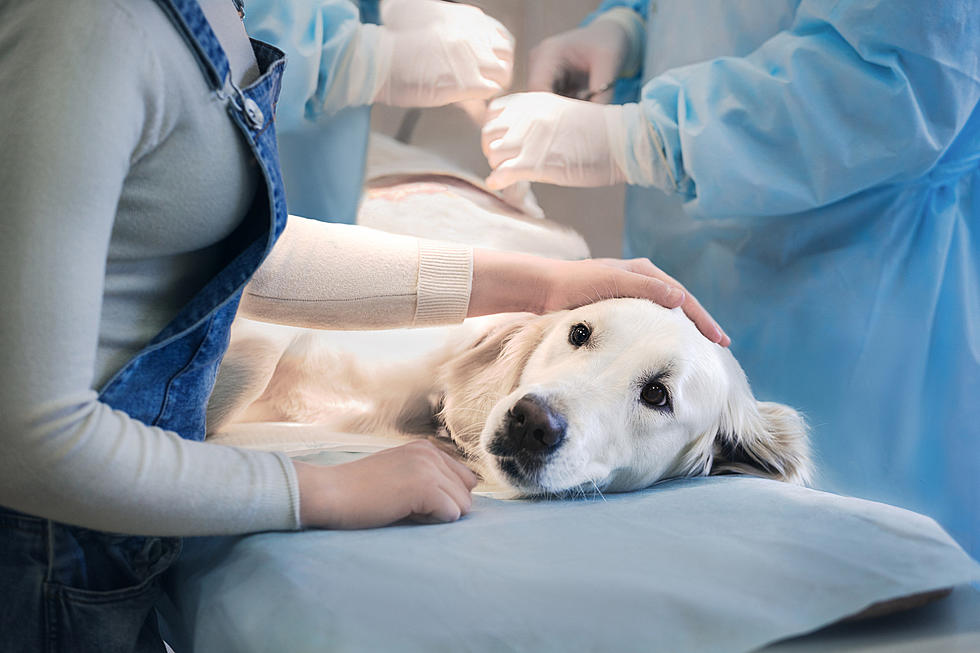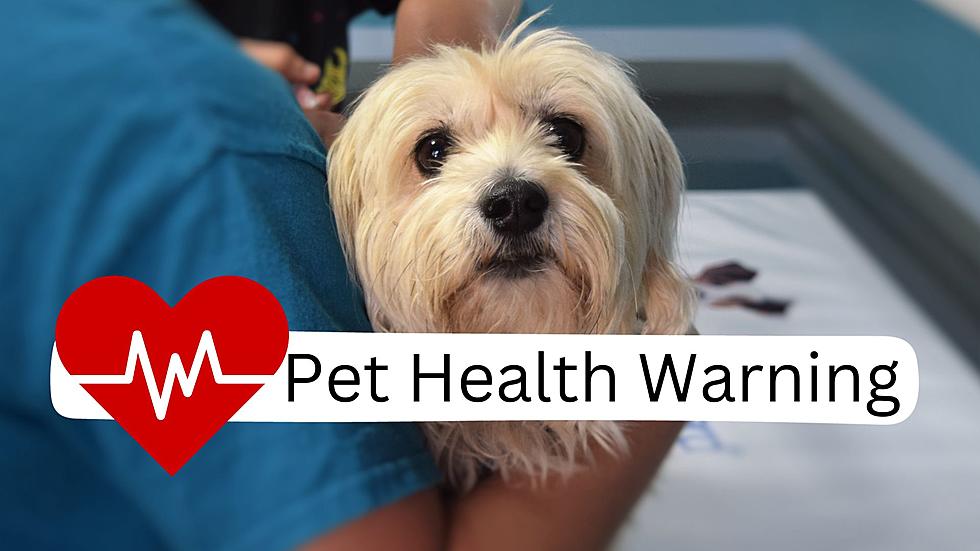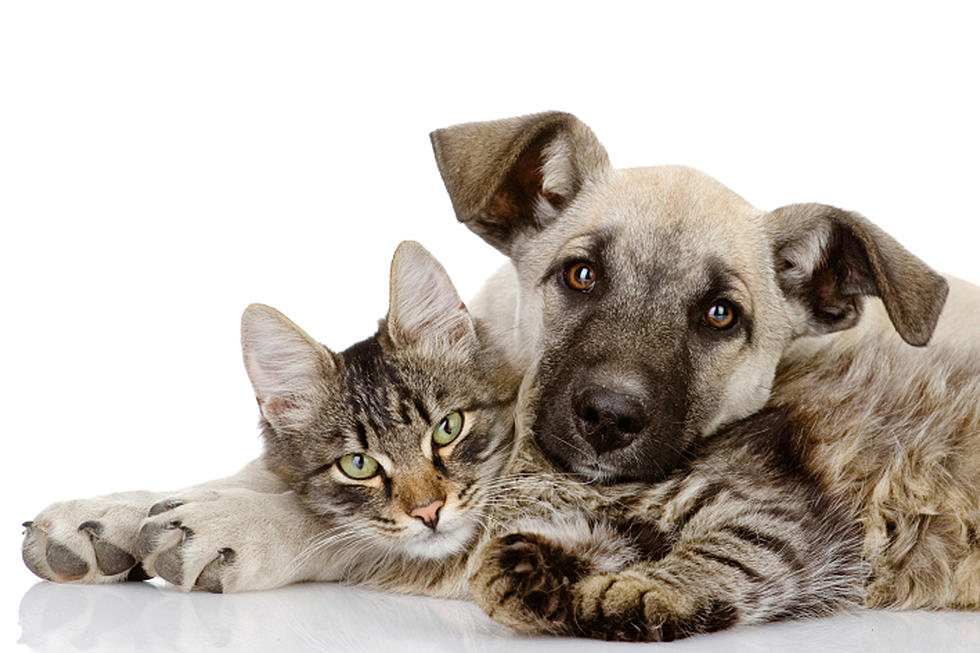
Do You Know What To Do In Case Of Accidental Poisoning In North Dakota?
While most of us are well aware of steps to take to avoid ingesting toxic substances, here are tips to keep our loves ones, young, old, and furry, safe.
Before we get to list here is the poison center hotline for North Dakota. If you feel it is an immediate emergency call 911.
North Dakota Poison Center
Call 1-800-222-1222 for all poison emergencies and questions. Do not wait for symptoms to appear. Our poison experts are available 24/7.
Western Dakota Vet
Call 1-701-572-7878 if your pet has ingested anything poisonous. While you may be asked to monitor them before bringing them into the vet, it is better to get that instructing from professionals.
Safety Tips for Children
Most poison control centers across the nation receive more than half of their calls from children under the age of six. These poisonings typically cause very minor or no symptoms, but they can also result in serious harm or even death.
Children are poisoned most frequently in their own homes. Here is a list of the main causes of children inadvertently poisoning themselves:
Storage
Poisons are not adequately stored. Keep dangerous items up high and out of sight (ideally locked up) to avoid a little child from getting into something they shouldn't. Also keep in mind that "child-resistant" but NOT "child-proof" caps exist!
Children may put non-food items in their mouths (particularly if they are brightly colored) because they are naturally intrigued about the taste, smell, and feel of products. Once again, keep children out of reach of these goods.
Children mistakenly believe that a poison is something else. Children may confuse "look-alike" products including shampoo, cough syrup, medicine, and fuel for food, beverages, or sweets. You should instill in your kids the habit of seeking permission before doing anything new.
Children model adult conduct after them. Children might mimic their parents' or grandparents' behavior, such as when they take medication. Aim to keep these goods out of children's reach and refrain from referring to medication as "candy" when using them.
Adults must choose which of these safety precautions may be successfully implemented at home.
Safety Tips for Children Seniors
Nowadays, older folks consume more prescription drugs than ever. One explanation is that elderly people require more medication to treat chronic illnesses.
Many bodily functions change and frequently slow down as we age, which has an impact on how drugs are absorbed, transported, metabolized, and excreted. The danger of drug interactions, drug/food interactions, and side effects is increased when these factors come together.
When combined with other medications, certain drugs lose their effectiveness or have harmful side effects.
Why are Seniors at Risk?
Our immune systems become less effective as we become older. Stomach inflammation and a drop in stomach acid take place. These elements raise the possibility of illnesses brought on by food-borne pathogens.
Seniors typically cook for themselves and/or their partners since they have limited appetites. This increases the likelihood of bacterial growth in the refrigerator because there will be more food leftovers to store there.
Prevention
AVOID: Seniors should refrain from consuming unpasteurized milk, cheese, fruit, or vegetable juices, raw or undercooked meat or eggs, raw seafood, and alfalfa sprouts.
CLEAN: Before preparing food, wash your hands in warm, soapy water. Also, wash the surfaces you use to prepare food both before and after each usage. Cutting boards made of plastic are simpler to clean. To clean surfaces, think about utilizing paper towels, or frequently wash your cloth towels. Before using a plate, pan, cutting board, or container that has previously held raw meat, wash it well.
COOK: All food that needs to be cooked should be cooked completely. Different proteins have different safe cooking temperatures.
CHILL: After cooking, store leftovers in the refrigerator or freezer for up to two hours before reusing. Throw out the food if it has been out for longer than two hours, including restaurant leftovers. To cool food more quickly, divide big quantities of leftovers into smaller containers. Consume chilled leftovers within four days. Keep in mind that it is advisable to discard food if you are unsure about its quality.
Safety Tips for Children Pets
A vital part of pet ownership is poison prevention.
Poisoning is a major cause of damage and death in companion animals in the USA, according to the American Society for the Prevention of Cruelty to Animals (ASPCA). They received 401,550 calls to their Animal Poison Control Center just in 2021. It's critical to remember that these numbers only include incidents that were reported, and that there are probably many more poisonings that go unreported.
In the USA, poisoning is the main reason why companion animals become hurt or even die. It's crucial to keep knowledgeable about the most typical poisoning triggers and take precautions to avoid them.
Be wary of houseplants
Keep in mind that many houseplants are poisonous to pets and keep them out of their reach or swap them out for pet-friendly alternatives. Many houseplants will upset your pet's stomach and make them throw up after consumption, but some plants might be more harmful.
Even swallowing the pollen from some lilies, such as daylilies and tiger lilies, can result in renal failure in cats. Make sure the flowers you bring home are safe for your cat before you use a bouquet as a decoration.
Be careful in the kitchen
There are numerous compounds that are safe for humans but poisonous to animals. Another prominent example is xylitol, a sugar replacement that can be found in chewing gum, candies, and some varieties of peanut butter. You probably already know that chocolate is terrible for dogs. Small doses of xylitol can result in a hazardous reduction in blood sugar, while larger doses can result in liver failure.
In addition, the following human foods are harmful to pets:
- Coffee beans
- Grapes and raisins
- Onions
- Alcohol
- Macadamia nuts
Keep medications in a safe place
Keep all medications, household cleaners, and chemicals out of your pets' reach. This includes vitamins and supplements, as well as prescription and over-the-counter medications.
Always keep these things out of your pet's reach in a locked cabinet or on a high shelf. Make sure that you and your house guests keep their purses in a secure location because pets frequently come into contact with dangerous medications by nosing through bags or purses.
Keep an eye on your pet outdoors
Recognize any dangers that may exist in your yard or other outside space. This includes securing garbage cans, fencing off any pools or ponds, and keeping your pets away from any fertilizers or chemicals you might use in your yard or lawn. Always keep an eye on your pets when they're outside, especially if they like to explore or stray.
Pet poisons might potentially be stashed away in your garage. Make sure your pet cannot access fertilizer or antifreeze. Toxic baits used to get rid of household pests, such as rat poison should also be stored out of reach of pets.
Prepare for emergencies
Keep the ASPCA Animal Poison Control Center's or another pet poison hotline's phone number prominently displayed so you have it on hand in case your pet ingests something harmful.
Consult a veterinarian right once if your pet's behavior has altered and you observe signs like vomiting, diarrhea (especially if blood is present), or changes in appetite or behavior. Create an emergency plan so you will know what to do if your pet consumes something toxic.
It's important to be aware of any potential hazards in your home and take precautions to avoid accidental poisoning because dogs and cats are naturally interested and may unintentionally consume toxic chemicals.

'80s Australian Invasion
More From KEYZ AM 660









